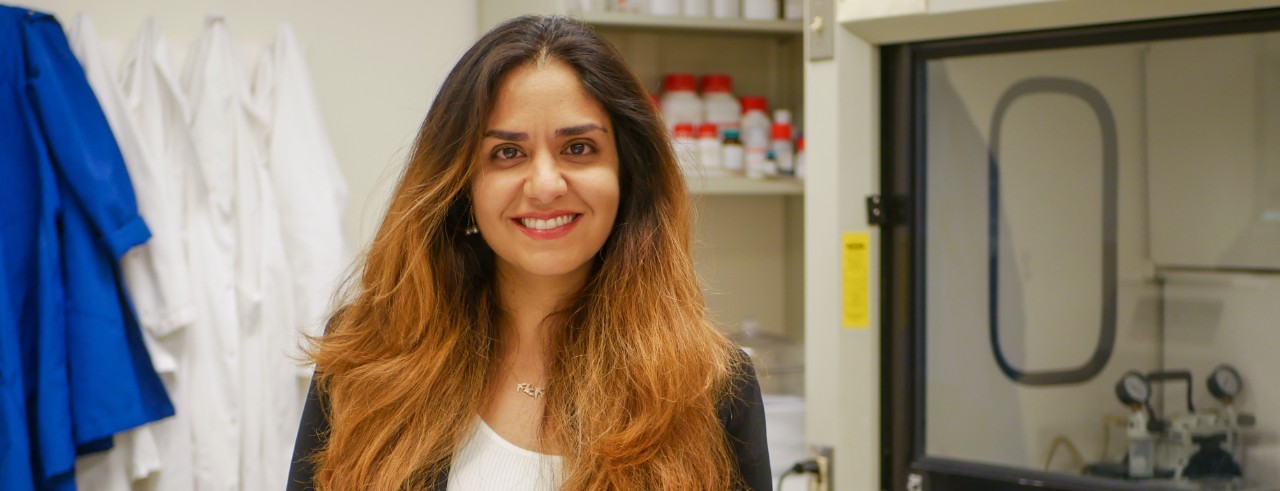
WVXU: UC researchers invents lab-on-a-chip device for cancer
UC College of Engineering and Applied Science professor is improving point of care
WVXU talked to a University of Cincinnati researcher who developed a noninvasive, point-of-care device for early cancer screening using a small amount of a patient’s body fluid such as saliva or blood.
Leyla Esfandiari, an assistant professor of biomedical and electrical engineering in UC's College of Engineering and Applied Science, has a patent pending on a small lab-on-a-chip device that can help doctors get accurate results without invasive biopsies.
"It's going to be faster, cheaper and more reliable," Esfandiari told WVXU. "The most important thing from the patient's point of view is that it's going to be minimally invasive. They are not going to take a tissue biopsy. They are going to get some blood or saliva."
Esfandiari and her research team in her Integrative Biosensing Laboratory at UC discovered a way to make that process faster, easier and more cost effective. Esfandiari frequently collaborates with colleagues from the UC College of Medicine and Cincinnati Children’s Hospital Medical Center. Conversations with those in the medical profession led her to explore a better way to isolate exosomes from the body fluids utilizing a novel label-free electrokinetic device.
Exosomes, or cell-secreted nanoscale extracellular vesicles, contain important gene regulatory contents and are highly abundant in all body fluids. They carry with them RNA and protein markers that indicate cancer and other diseases. While it’s easy to collect the body fluids, it’s challenging to extract exosomes from the fluid to identify the biomarkers.
Featured image at top: UC assistant professor Leyla Esfandiari develops point-of-care devices in her lab in UC's College of Engineering and Applied Science. Photo/Corrie Mayer/CEAS Marketing

UC assistant professor Leyla Esfandiari and her research team created a lab-on-a-chip device for the early testing of cancer. Photos/Corrie Mayer/CEAS Marketing.
Related Stories
Tenecteplase no longer 'off label' for acute ischemic stroke
March 17, 2025
The University of Cincinnati's Yasmin Aziz was featured in a MedCentral article discussing the recent FDA approval of the drug tenecteplase for treatment of acute ischemic stroke.
UC chief digital officer named 2025 Ohio ORBIE Awards Enterprise...
March 14, 2025
University of Cincinnati’s Vice President & Chief Digital Officer Bharath Prabhakaran was named 2025 Ohio ORBIE Awards Enterprise CIO of the Year. This award recognizes Bharath’s leadership in digital transformation, fostering innovation, and enhancing student success at the University of Cincinnati.
Golden Reunion a perfect opportunity to contemplate, celebrate...
March 14, 2025
We’re all familiar with one of time’s odd characteristics: Something may have happened ages ago, but it can feel like only yesterday. Over many years, things change a lot, or maybe not at all. This feeling is occurring now within the newest members of the UC Alumni Association’s Golden Bearcats Society, which honors those who have reached the half-century mark as University of Cincinnati graduates.
